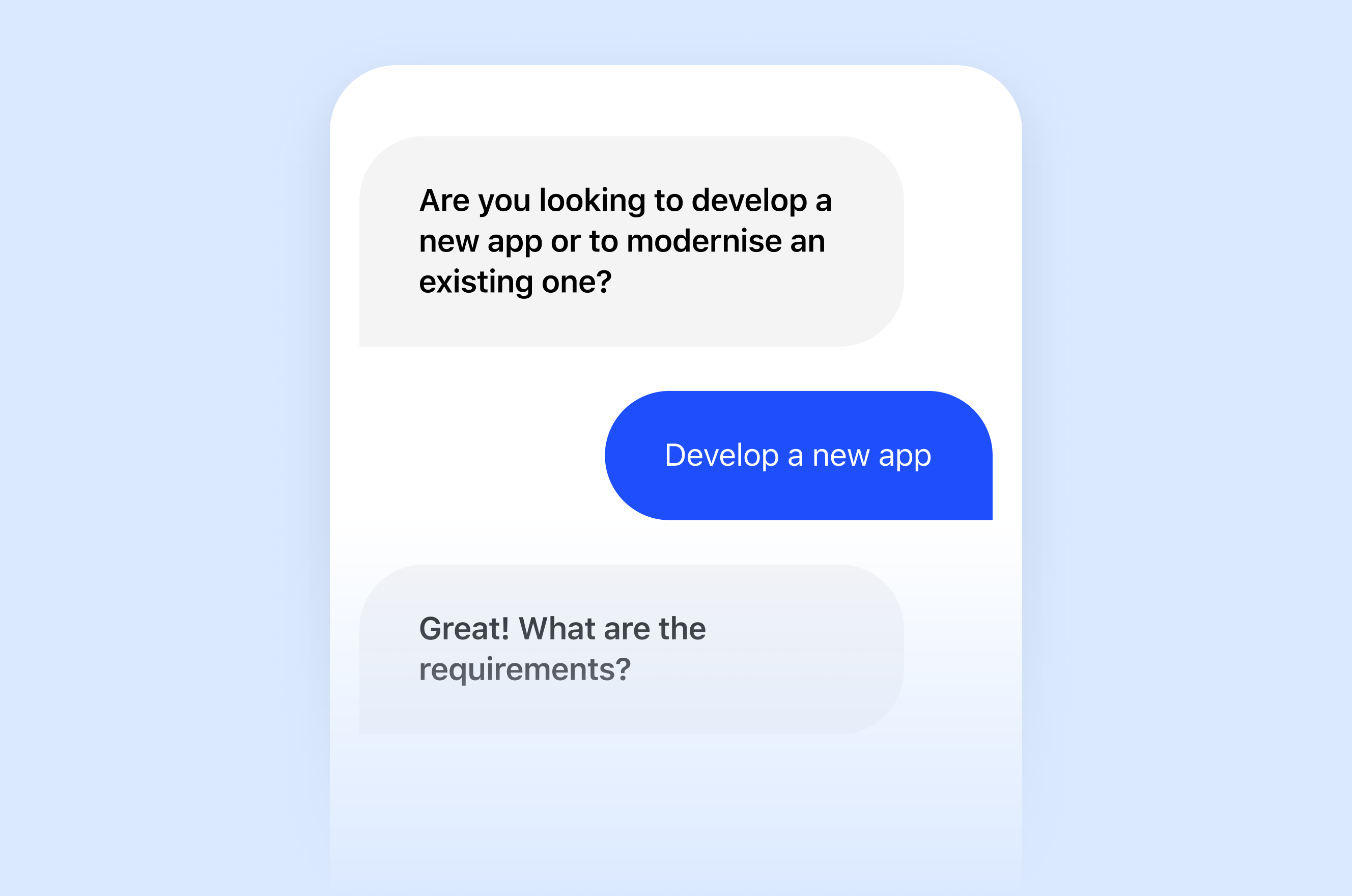
Supercharge your forms with conversational chats
Static forms are omnipresent in our digital lives. We fill in standard contact forms, feedback, or support forms almost daily. They're boring, mostly hard to fill in, especially if you're on mobile, and honestly, they're a relic of print-era times.
Things are about to change with conversational forms, which transform the static, no-feedback approach into an interactive and pleasant user experience. Let's take a look at what conversational chats bring to the table.
Better conversion rates
Research shows that conversational forms are likely to convert 70% of people compared to only 30% from traditional forms, which should raise some eyebrows for any result-driven person. But why is that?
When we think about traditional forms, they have a static format and require specific data. On the other hand, conversational forms are far more interactive. They can provide a fun way to gather information and redirect people to relevant resources or links based on their needs. You can replace long and stodgy forms with well-thought-out user experiences and provide the user with real-time responses, something that traditional forms just can't.
Unlimited applicability
Ask yourself this - Would you like to waste time filling in a long support form, then wait to be contacted by a representative? All that, while not knowing for sure if you contacted the right technical team or if your problem has a straightforward solution. The alternative would be to use a conversational form, where you can select the specific problem category. You then get relevant troubleshoot solutions for your particular problem. In case that doesn't solve it, you will be redirected to the right person to assist you.
We believe the second option is far more functional and appealing. Conversational forms can provide multiple options and detailed information at each stage of the funnel. That's why they could be creatively applied to unlimited industries and needs. Think about retail, where agents could receive information about stocks through a custom-built conversational chat. Furthermore, it can be used for an e-learning platform, where employees or customers are guided through a discovery funnel. They could select the general domain they would like to study. Then based on a set of questions, receive the right content, tailored to their needs. The same could be applied to an internal training platform, making things simple and interactive.
Another creative use-case could be to apply it to a sales funnel that has a considerable level of complexity. Let's take the example of an energy company that provides services to both B2B and B2C customers. The conversational form could first ask if the customer is a business or a household consumer. Then it could ask specific questions regarding the type, power, and number of electricity consumers to determine the right service package. Leveraging this information, the customer could receive the right offer for him or be redirected to the right sales consultant.
Thinking about leveling up your marketing efforts? Conversational forms can be repurposed to create gamification flows, quizzes, and creative contests for your brand fans.
Goodbye to CAPTCHA
Have you ever struggled to figure out if that's a B or a D on the twisted CAPTCHA letters? Fortunately, with conversational forms, they'll be a thing of the past. There's obviously no reason to use them. The conversational form can easily prove the user is human through the actual conversation. Besides, CAPTCHA can be time-consuming. Most of the time, the text is difficult to read, which ends in the user's frustration as he needs to generate a different code and restart the process.
Better design - happier customers
Conversational forms can be perceived as better design, which translates to happier customers through a seamless and user-friendly experience.
- Both solutions collect vital information, but the conversational form is more focused on the user experience.
- The flow can be custom-tailored for the specific needs and responses from the user.
- You can collect better quality information as you can ask users to elaborate on certain relevant points.
Conversational forms are providing huge opportunities for brands and companies. They can better engage with their customers, develop better and friendlier conversational solutions and improve the quality of the collected information.